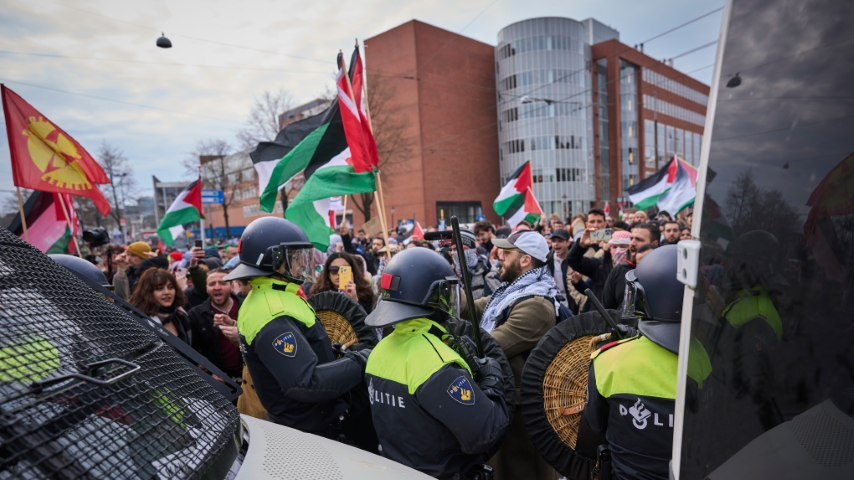
Protesters rally against the presence of Israel's President Isaac Herzog at the inauguration of the new National Holocaust Museum in Amsterdam, Netherlands, on Sunday, March 10, 2024. The demonstration was captured in an image taken by Phil Nijhuis for the Associated Press.
In a poignant event on Sunday, the Netherlands unveiled its National Holocaust Museum, marked by a ceremony graced by the Dutch king and Israeli President Isaac Herzog. However, Herzog's attendance stirred protest due to Israel's recent actions in Gaza. Situated in Amsterdam, the museum narrates the harrowing tales of the 102,000 Jews deported from the Netherlands to Nazi camps during World War II, along with their systemic persecution under German occupation.
King Willem-Alexander expressed, "The museum gives a voice to the Jewish victims, underscoring the catastrophic consequences of antisemitism." Herzog praised the Netherlands for establishing the museum amidst a global surge in antisemitism, advocating remembrance to prevent the resurgence of hatred-driven atrocities.
Despite the solemnity, the ceremony unfolded against the backdrop of Israel's military operations in Gaza, prompting thousands of pro-Palestinian demonstrators to gather near the museum and synagogue. They voiced demands for an end to Israeli occupation and immediate cessation of hostilities in Gaza, expressing particular opposition to Herzog's presence.
Joana Cavaco, an anti-war activist, denounced the utilization of such sacred spaces to "normalize genocide today." The event resonated deeply as three-quarters of Dutch Jews fell victim to Nazi brutality.
Herzog, rebuffing allegations against Israel in a recent UN court ruling, denounced the misrepresentation of his statements and affirmed Israel's rejection of claims of genocide in Gaza. Conversely, pro-Palestinian groups criticized Herzog's attendance, citing it as insensitive amidst ongoing conflicts.
Expressing concern over the ongoing war, the Jewish Cultural Quarter emphasized the urgency of their mission in opening the museum. Housed in a former teacher training college used as a covert escape route during WWII, the museum showcases artifacts, photos, and texts portraying the atrocities endured by Jews under Nazi rule.
It vividly illustrates the systematic dehumanization and discrimination faced by Dutch Jews, highlighting the imperative to remember and learn from history. Ultimately, the museum serves as a poignant reminder of the atrocities of the past, urging vigilance against the resurgence of hatred and discrimination.















